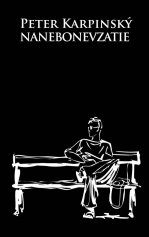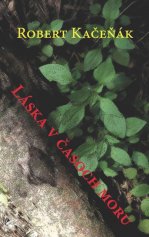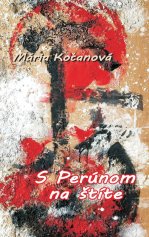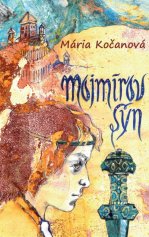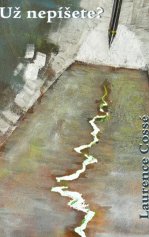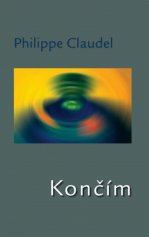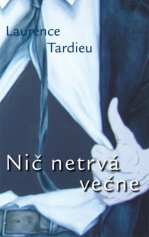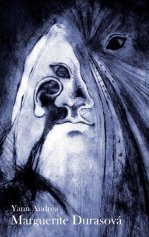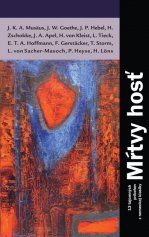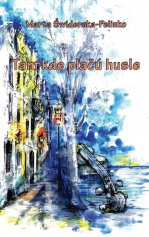Prose
Ľudovít Petraško: Bygone Times
Far away from home, in Canada, Karol Manik has completed his memories of the childhood spent in the region of Upper Šariš, memories of the First World War and Italian front line, coup d'état and emigrant anabasis. He has never met with Anuška, author's grandmother, with his grandfathers or father, protagonists of the second narrative line, despite this.
Peter Karpinský: Antisumption
Peter Karpinský represents his second book for adults Antisumption after 12 years since the debut Notice for all owners of graves (1997). It was worth waiting for so long. Antisumption is a mature and conceptually sophisticated prose collection.
Roman Kaliský-Hronský: Give the Elevator to Sisyphus!
Author's prosaic debut Give the Elevator to Sisyphus! brings the inexorably realistic stories of various characters – from homeless man through soldier in love or peculiar opera lover to the drug addict model. World in which the heroes of short stories are living does not always look kind and happy.
Robert Kačeňák: Love in the Time of Plague
Novella Love in the Time of Plague offers a story of two main characters, professor Cyril Médeus and female student Silvia Atanasevová. By placing the story to the well-known period of real socialism in the 1970s the author explores the boundaries between two phenomena in a literary way.
Braňo Hochel: ThE ABBA or Dad is a tattoth!
The author with a sense of experiment draws on everyday situations which he many a time poses as a play with the reader. The problems are a result of bureaucratic obstacles, overcome by backstage acts as well as phenomena of deep psychology, as presented by the short story Balcony.
Mária Kočanová: With Perun on a Shield
A fifteen-year old daughter Sajava of the Croatian prince Ljudevit is to marry Zvonimír, the son of the Moravian prince Mojmír in order to solidify the unity of the Slavic people. Before the wedding took place, the whimsical and roguish girl had been kidnapped by Baldrik, the son of the Fuldian prince, who fell in love with her as a prisoner at her father's.
Broňa Hochelová: A novel for girls from the previous century
Teasing one's teachers and girl friends among a bunch of pals, carelessly hidden envy, but also dreams and cravings for love. Will the author succeed in avoiding a cliché so that the major protagonist Silvia did not seduce the physics teacher Dodo and did not become pregnant?
Zdenko Fajčák: Without a Space Bar
Not only does literature take no notice of the world of contemporary outsiders, but it does not usually happen that anti-heroes, sometimes coming from a cyberpunk background, are unsettled by situations when seemingly nothing happens. The way they communicate points out rather non-sense outside them than emptying of their speech.
Mária Kočanová: Mojmír’s son
Svätopluk experiences the childhood in times when the Slavs get acquainted with Christianity through the Frankish priests. During the games with his peers he develops the characteristics which the future ruler should have – brightness, bravery and power. He shows those characteristics during the expedition into the regions inhabited by mysterious Heruli.
Laurence Cossé: Don’t you write anymore?
Cossé brings in her every story the realistic view on the status of the writer in consumer society. Revealing its true face the author clearly indicates, that society is not adequately able to appreciate the creative work of writers, whereas royalty almost never reflect the value of literary work.
Philippe Claudel: I Give Up
With a genuine style compelling story, the author won Prix du Roman France Télévision 2000. Claudel has recieved several significant awards and he is nevertheless not lacking a human modesty.
Zbigniew Domino: Polish Siberiada
Domino’s novel is the most serious and comprehensive storytelling about the emigration known from Polish literature. It is about the fate of people, who were on the basis the Molotov-Ribbentrop Pact, displaced by Red Army from east part of Polland to northeastern part of former Soviet Union.
Laurence Tardieu: Nothing Lasts
Laurence Tardieu is one of the strong and promising young writer of France having a sense for dynamic and dramatic story. In spite of searing story working with, she writes in an engrossing and simple style, without undue pathos, striking a sour chord.
Yann Andréa: Marguerite Duras
Yann Andréa was born in 1952. He was companion for life to one of the most significant french writer Marguerite Duras. By a diary form he describes in detail a difficult period of world-known writer, who had to undergo a recovery just before 70.
Michel-Antoine Burnier, Michel Contat: Sartre’s years of passion
Both authors, who met with Sartre in 60’s years captured in their book an existentialism of their youth, the fight against Algerian war, they developed the exciting novel plot about Sartre’s life and work, about his friendships, rebellion and political engagement.
Marta Świderska-Pelinko: Taste of Wandering and Eden
Marta Świderska-Pelinko, evaluated in Poland as the most cultivated writer among the women authors, presents herself in a book form in Slovakia for the first time. It is her second novel. This bestseller of the contemporary Polish literature was created on the basis of believable facts from which many haven’t been solved by English or Polish police up to now.
The Dead Guest (13 mystic stories from German classic)
The only everlasting story is a one that did not happen – this principle was applied in the literary production, fabrication was in this way closer to truth than uncertain reality. These gloomy stories are not an exception – the higher they are floating in the clouds, the more tightly they are down-to-earth, frequently thanks to the strong social overtones.
Marta Świderska-Pelinko: Where the Violin Cries
Mela, on whom war events left their mark since early childhood, attempts to flee from home where scarcity prevails and decides to marry the officer Jan. Three generations of her family deal with manifold struggles. In the background economic-political changes since the end of the World War II up to transformation of the socialist economy into a capitalist one become visible, which does not leave their personal lives untouched.


